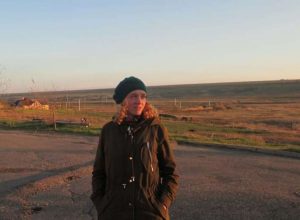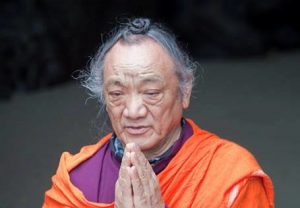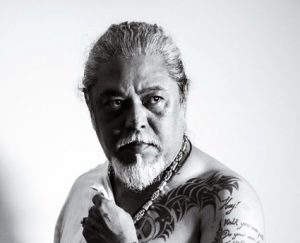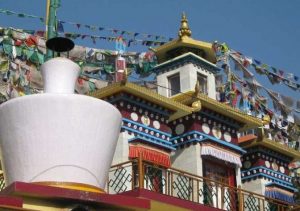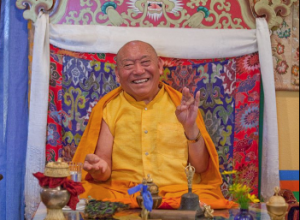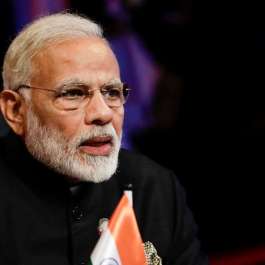In today’s action-packed cinema, it is almost de rigueur to see a computer-generated alien take over the world in a fierce battle between the human race and beings unknown. Our heroes have become men in iron suits, hammer-wielding (and extremely good-looking . . . just being Thorough with my details here) gods of other realms and even a super man, who has been saving the cinematic world since 1978. I sometimes wish the on-screen fighting, sans CGI (computer-generated imagery) and fictitious beings, would involve some major kicks, a few killer punches, and the familiar “yaaa” of a martial artist flying through the air, about to defeat his foe in one slow-motion flying kick. Now that, is action.
Kickin’ his way into the martial arts scene in 1982 with the film Shaolin Temple was Li Lianjie. Better known as Jet Li to his fans worldwide, this tough fighter trained in wushu (martial arts) from the age of eight, and has also had training in Baguazhang, Taijiquan, Xingyiquan, Zuiquan, and Tanglangquan. He got his celebrity name after a Filipino publicity company decided “Jet” was an apt description for his speed and agility. Born in 1963 in Beijing, Jet Li was reborn after the same company “likened his career to an aircraft taking off”: this Chinese actor’s career has indeed had a speedy rise.
In 1998, Jet Li became seriously involved in Tibetan Buddhism. He believes all religions teach the same goals: “Every religion boils down to love, to a respect for all living things, to choosing peace over violence as a means of resolving a conflict. The essence is universal; it is only the means to the end that varies” (The Hollowverse: The religions and political views of the influential). In an article published by Dharma Drum Mountain (DDM) in 2003, when Jet Li met DDM founder Master Sheng Yen, Li revealed that the physical toughness he gained from martial arts did not translate into a similar mental strength. Only through the practice and study of Taiji and yin-yang did Li eventually find peace: “He gathered strength from Buddhism and gained enough wisdom and strength to break the bond of fame that has tied him down for many years,” the article reports.
Li became such a devout Buddhist under Vajrayana master Palme Khyentse Rinpoche that he considered forgoing his career. However, Rinpoche advised him otherwise, and Li remained a star but used his influence to spread Buddhism through his films and foundations. In 2007, Li initiated a
partnership with the Red Cross Society of China which, after full registration in Shenzhen in 2010, became the fully independent “Jet Li One Foundation.” The One Foundation acts as a “professional and transparent public service platform,” focusing on disaster relief, children’s welfare, and philanthropy development.
During their 2003 meeting, Master Sheng Yen asked Li to give a few words of advice to the young audience. In response, Li said, “The one big problem with human beings is that we blame everybody and everything else for our problems, but never reflect upon ourselves.” Reflecting on his Buddhist beliefs, Li said we can gain clarity—the ability to consider different viewpoints leads to greater contentment and understanding. His advice in dealing with an obstacle, perhaps inspired by both his Buddhist views and martial arts training, was that we should “face it, accept it, solve it, and put it behind us.”
In an interview with Kung Fu Magazine, Jet Li spoke in detail of his “philosophy behind the action.” Li stressed that youngsters need to be taught through experience, allowing them to decide between right and wrong. Moreover, he talks about anger and love. When angry with someone, our first reaction might be to hurt them physically . . . which brings out the “bad energy.” He rather focuses on bringing about a change to show them the “right” of things. Li’s passion for martial arts is evident as he explains, “(In) martial art, physical movement doesn’t represent anything. You represent how to use the martial art.”
Starring in Hollywood hits like Lethal Weapon 4 (1994), Romeo Must Die (2000), and Kiss of the Dragon (2001), and Chinese movies such as Once Upon a Time in China (Wong Fei Hung, 1991) and Fong Sai Yuk (1993), Jet Li has repeatedly demonstrated his prowess in both acting and martial arts. A devout Buddhist and international star, Jet Li has given back to those in need as well as remaining an icon for his exceptional roles as an action hero. And finally, kudos to the star for admitting his devotion to Buddhism . . . over English: “I spend more time learning about Buddhism than English, which is why my English today is still bad,” he confesses.
Well, at least now I’ve discovered one thing Mr. Li hasn’t accomplished at lightning speed!
See more
Jet Li video interview: “Secret to Happiness”







